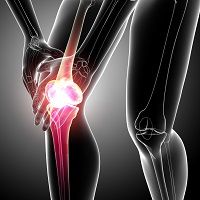Article
Most Extensive Study Reveals Relationship Between Osteoarthritis Pain and Sleep
Author(s):
In addition to causing potential damage to the joints, cartilage, ligaments, and bones, osteoarthritis (OA) can lead to sleep disturbances that in turn affect a patient's quality of life.

In addition to causing potential damage to the joints, cartilage, ligaments, and bones, osteoarthritis (OA) can lead to sleep disturbances that in turn affect a patient’s quality of life.
There’s growing evidence that there a link between OA and central sensitization (CS), a hyper-excitability in nociceptive pathways that has proven to increase clinical pain. Since many patients with OA also report sleep issues, lead author Claudia Campbell, PhD, and her colleagues from the Johns Hopkins University School of Medicine and Harvard Medical School studied the correlation between the 3 factors. Does the debilitating disease partnered with sleep disturbance have a relationship with CS or are they completely separate?
“Our study is the largest and most comprehensive examination of the relationship between sleep disturbance, catastrophizing and central sensitization in knee OA,” Campbell, from the Department of Psychiatry & Behavioral Sciences, said in a news release.
The Centers for Disease Control and Prevention (CDC) estimates that 13.9% of Americans ages 25 and older suffer from OA. Since there is not a cure for the condition, only treatments to relieve symptoms, research is crucial to patients as well as clinicians.
The team evaluated 208 participants — made up of 72% females – to find the correlation between conditions. The patients were separated into one of 4 groups based on diagnose(s):
- OA and normal sleep habits
- OA and insomnia
- Insomnia but no pain syndrome
- Healthy controls
The participants completed sleep assessments with multiple parts including questionnaire, diary, actigraphy, and polysmnography. In addition, they underwent sensory testing and psychological and pain evaluations. The researchers were able to draw conclusions from the results that were recorded in Arthritis Care & Research.
“Understanding the intricate relationship between sleep, central sensitization, and catastrophizing has important clinical implications for treating those with chronic pain conditions such as knee OA,” Campbell explained.
The data revealed that the group consisting of patients who had both OA and insomnia experienced the most central sensitization. Furthermore, those who reported poor sleep and high catastrophizing in turn also had higher central sensitization. Therefore, it is indicated that increased central sensitization leads to more critical pain.
“While no causal processes may be determined from this study, our data suggest that those with low sleep efficiency and higher catastrophizing have the greatest central sensitization,” Campbell confirmed.





